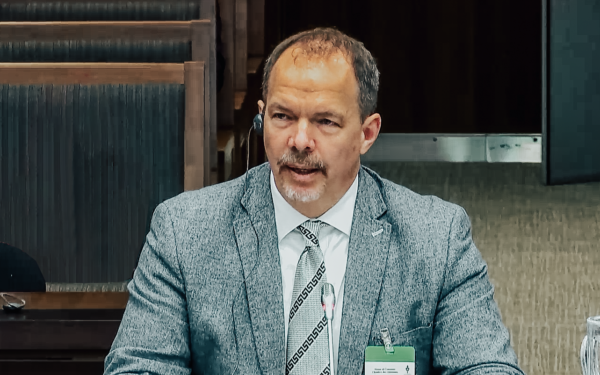It was a bad week for the internet, but there is hope
The working title for this blog was “It was a bad week for the internet” (bad may be a euphemism in this case). While it seems everywhere we turn the internet is under attack; I believe brighter days lie ahead as there is one thing virtually everyone agrees on: the internet is critical to our future as a society.
We’re at an exciting crossroads for the internet in Canada. On the one hand, the pandemic has proven that the internet is critical to the functioning of our society, required for everything from starting a business to educating our children. If there is one thing the last 15 months have demonstrated, it is that the internet is no longer a luxury. On the other hand, large global platforms such as Facebook and Google have demonstrated that their values don’t always align with the values of a functioning democracy. While this may seem like an attack on those companies, I think it is fair to ask; what is the role of private, for-profit platforms in the discourse of a healthy democracy? It’s a lot like asking what role large telecom companies should play in the government’s strategy to connect all Canadians with high-quality internet?
The internet is a unique technology that began as a social good—a channel mainly for researchers and academics—and has now evolved into the most significant communications platform in human history. It has scaled so quickly that we’ve had trouble keeping up.
Last week was a particular low point as the internet took a few heavy blows. First, the Federal Court of Appeal denied the appeal, led by TekSavvy, of the website-blocking case against GoldTV. CIRA was an intervenor in the case and argued ISP-level blocking is a disproportionate remedy to the copyright infringement allegations in the GoldTV case. While it is important to underline that the court did not open the door for ISPs to block of their own volition, it is concerning that website blocking without judicial oversight now has a foothold in legal precedent.
This ruling puts into question the entire technical underpinning of the internet and how it interacts with our legal system. Yes, we must enforce our laws, including things like copyright, but we must be balance enforcement with the potential for harm to the technical functioning of the internet. If a house is a host to criminal activity, do we tear up the roads leading to it and take away its address or arrest the criminals inside? Surely we should err on the side of a proportionate response.
However, the week was not done with the internet. The CRTC dealt the internet another defeat when it reversed a 2019 decision to reduce wholesale internet rates. These rates, which had been lowered by a previous CRTC decision, were critical to certain smaller ISPs who purchase access to the networks of large national ISPs. While those smaller players are now arguing that they may be forced to reduce investment and raise prices, larger organizations are promising new network investments to close the internet gap. What role does the government have in fostering competition on the internet, and if we consider it a public good, what role do large ISPs have in making the internet more affordable?
It is serendipitous that this bad news should come the same week that CIRA released its report Canadians demand a better internet. While the report has many interesting takeaways (and you really should read it in full), the thing that struck me was just how divided Canadians themselves are on many digital policy issues, often agreeing on the problem, but not the solution.
For example, while Canadians supported the idea of a new law requiring social media platforms to remove illegal or harmful content within 24 hours (79 per cent), many are concerned this could result in the removal of legitimate, lawful speech (62 per cent). Similarly, 59 per cent of Canadians support government action to stimulate the creation of Canadian content. However, the remedy the public prefers directing GST/HST revenue to Canadian creators, which is quite unlike the government’s current plan on the table with Bill C-10.
What we are seeing is that while Canadians generally want the internet to reflect their values, and understand how critical it is to their lives, they are wary of using the same tactics that were used to solve 20th Century problems in the 21st. Can we realistically expect to apply rules created for radio, land-line telephones, and printing presses to the internet without fundamentally altering what makes it so remarkable in the first place?
Therein lies the opportunity: while the days of the wild west internet may be over, we have the ability to create something new, something that reflects our values but doesn’t undermine the spirit of the open internet. We can rewrite the rules of the internet to encourage both creativity and competition while also recognizing its place as a public good that must be compatible with a growing democracy.
CIRA is here to be a voice for that evolution, and we encourage all those who love the internet as much as we do to help be a part of that process.
Byron Holland (MBA, ICD.D) is the president and CEO of the Canadian Internet Registration Authority (CIRA), the national not-for-profit best known for managing the .CA domain and developing new cybersecurity, DNS, and registry services.
Byron is an expert in internet governance and a seasoned entrepreneur. Under Byron’s leadership, CIRA has become one of the leading ccTLDs in the world, with over 3 million domains under management. Over the past decade, he has represented CIRA internationally and held numerous leadership positions within ICANN. He currently sits on the Board of Directors for TORIX, and is a member of the nominations committee for ARIN. He lives in Ottawa with his wife, two sons, and their Australian shepherd, Marley.
The views expressed in this blog are Byron’s opinions on internet-related issues, and are not necessarily those of the organization.




